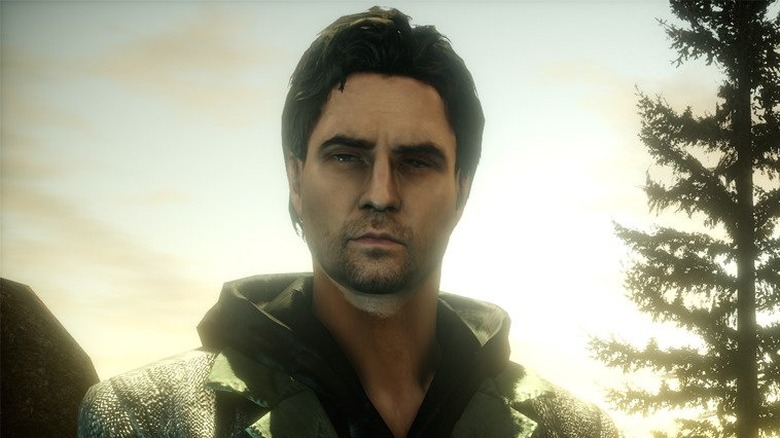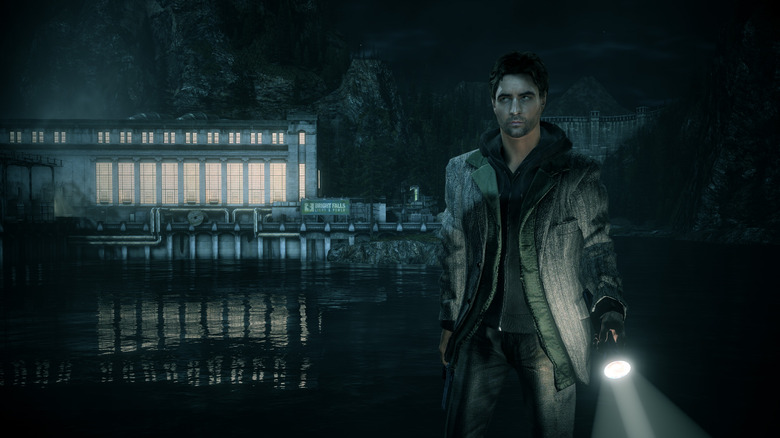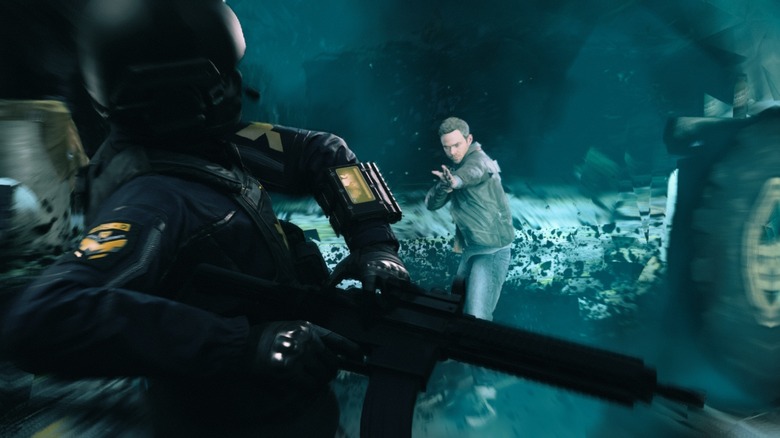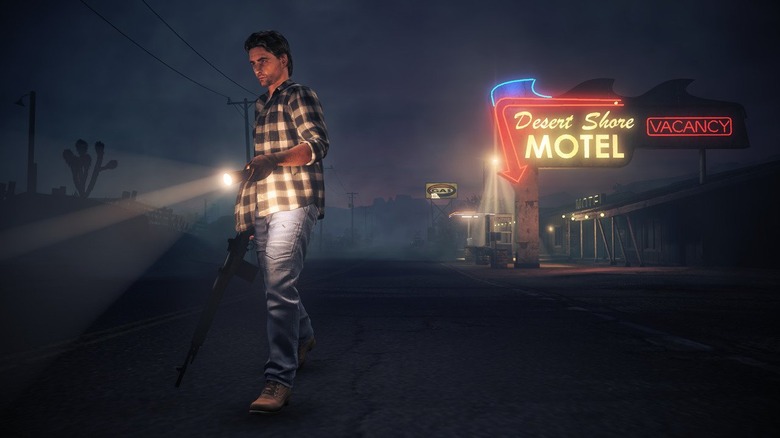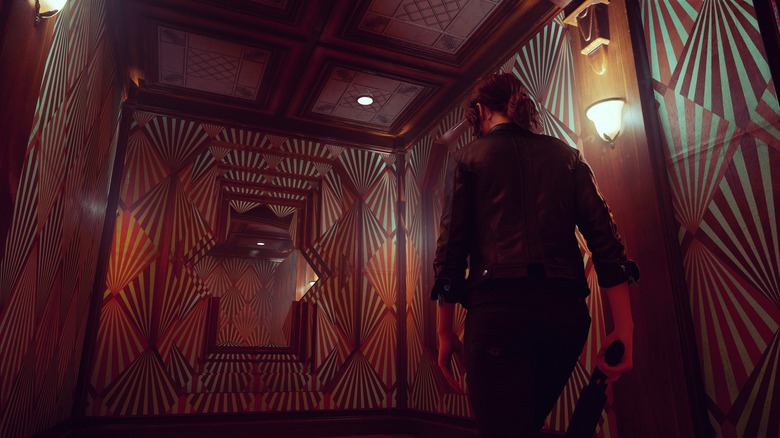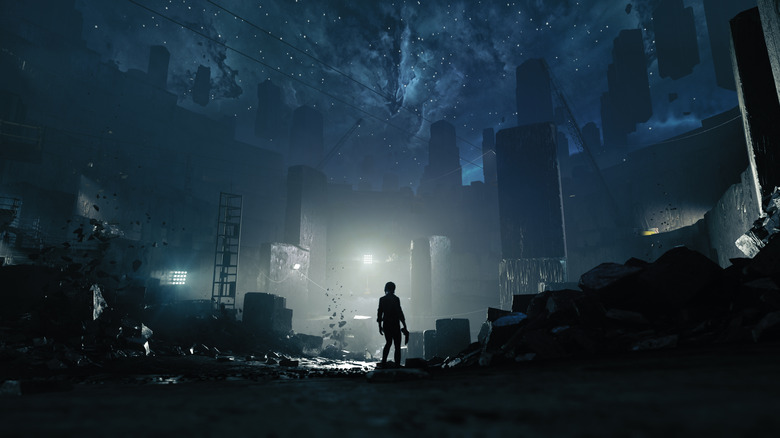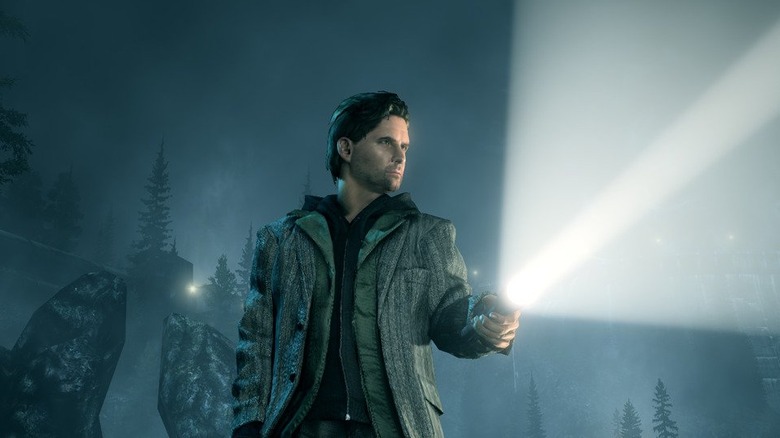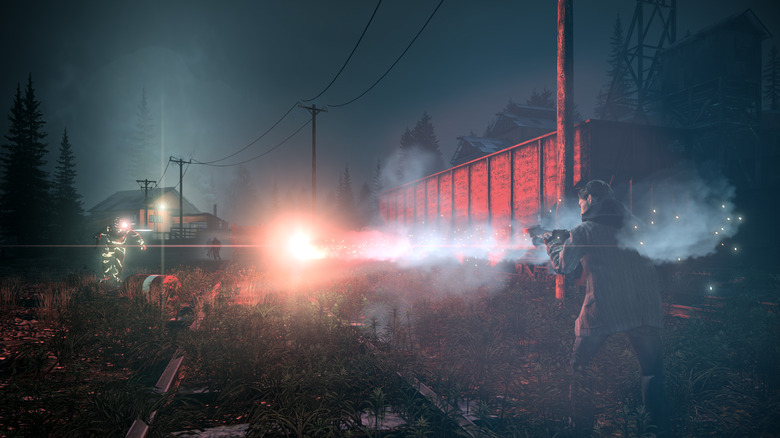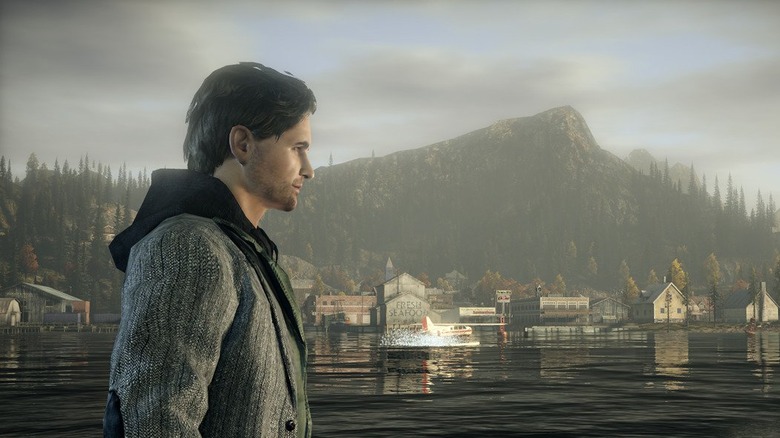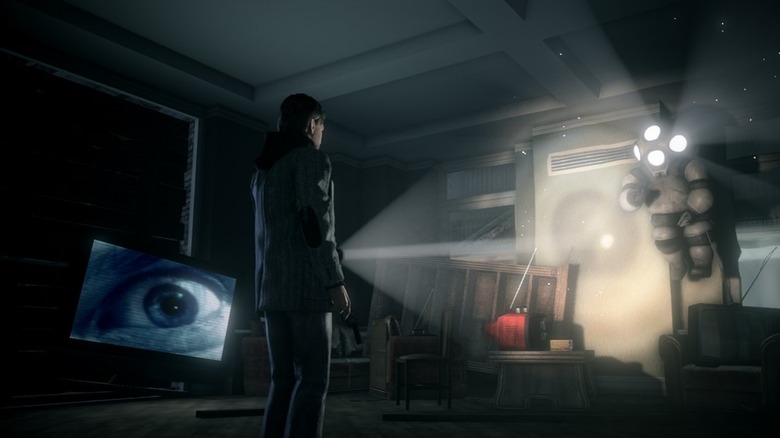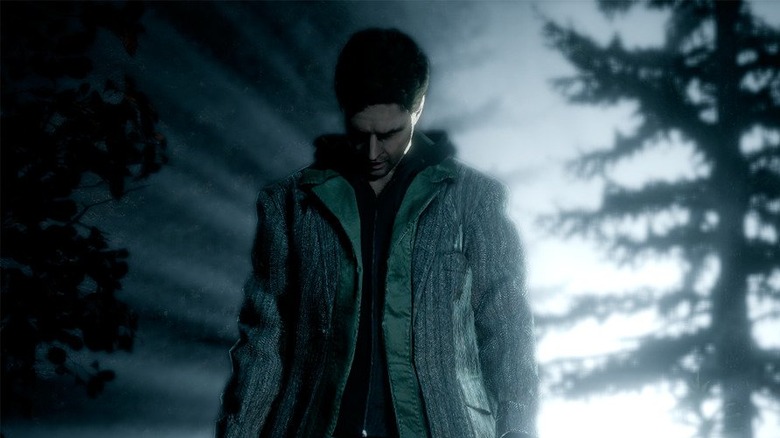Why We May Never Get Alan Wake 2
Alan Wake, Remedy Entertainment's television thriller-inspired action-horror game, released on the Xbox 360 back in 2010. Despite the many years that have gone by, fans continue to hold out hope for a sequel. Between a strong reception from critics, its many awards and nominations, and Remedy's weak spot for the franchise, it's easy to see why. The series is "very dear to us and close to our hearts," game director Mikael Kasurinen told DualShockers. "We all love Alan Wake at Remedy and I think all of us want to see a new Alan Wake game."
Unfortunately, not all love stories have a happy ending. Despite the accolades, its loyal following, and Remedy's best intentions, Alan Wake 2 has several factors working against it. As time passes and the gaming industry continues to evolve, the dream that is an Alan Wake sequel fades a little more, diminished by the confines of contracts and its shrinking genre. Though the ghost of a possibility remains, a look at recent trends and Remedy's journey as a company points towards the end of the road for the Alan Wake game series.
Property vs publishing rights
According to director of communications Thomas Puha, Remedy Entertainment owns the Alan Wake IP "but it's never quite as simple as that." This revelation has left many wondering why Remedy has not created a sequel, especially since they've expressed interest in the project on multiple occasions. The short answer? Microsoft.
"Considering our history ... Alan Wake was really interesting, but it was a collaboration with Microsoft," said CEO Tero Virtala in a July 2018 interview. "Due to certain reasons, it never got a sequel." Here, you can see an important distinction come into play: Remedy may own the Alan Wake IP, but Microsoft owns the publishing rights for the series. The details of this arrangement remain muddy; however, a look at Remedy's publishing deal with 505 Games may provide some insight into the "certain reasons" Virtala hinted at. Signed back in May 2017, the agreement between the two companies granted 505 Games exclusive worldwide publishing rights to Remedy's next title for twenty years. In return, 505 Games will promote the project via their marketing and publishing services and provided a €7.75 million investment. Assuming Remedy entered a similar contract with Microsoft for Alan Wake in 2006, Microsoft will likely retain publishing rights for about another decade.
That's a pass
Following the release of Alan Wake, Remedy created prototypes for Alan Wake 2. "More or less straight from getting Alan Wake shipped, we were working on a sequel and planning on a sequel," Sam Lake, Remedy's creative director, told Polygon. The developer turned these prototypes into a pitch video they shopped around to various publishers before ending up back at Microsoft. "We showed it to Microsoft and I guess at the time Microsoft was looking for something slightly different for their portfolio," Lake explained. "Quite quickly our discussion about Alan Wake 2 turned into something else and that something else turned into Quantum Break." Remedy entered another publishing deal with Microsoft, shifting their focus to the new sci-fi action-adventure. After a delay, the game finally released in 2016.
Though many hoped Remedy would return to the Alan Wake series following Quantum Break's release, it seems Microsoft had no interest in continuing either franchise. "Quantum Break, also, we put a lot of effort into creating the world, the characters, the stories, but still it was Microsoft IP. They decided not to take it further," Tero Virtala told GamesIndustry.biz. Remedy has never given an official reason for Microsoft's lack of interest, but Alan Wake's poor initial sales may have something to do with it. The game sold only 145,000 units during its launch month, finishing eighth overall on the software chart.
Prototype purgatory
Though Remedy created several prototypes and gameplay tests for Alan Wake 2, much of that work ended up in Alan Wake's American Nightmare. The spinoff game set in the Alan Wake universe released in 2012. It's possible the title represented Remedy's realization that a true Alan Wake sequel would not happen in the foreseeable future. "The setting, even some of the enemies, ended up in American Nightmare, which was a fun, small project with very limited resources," Lake said. "You can glimpse certain aspects of American Nightmare in the prototype."
Though Alan Wake's American Nightmare received decent reviews, a confusing story, thin character development, and tedious mechanics left critics disappointed. The title was not the follow-up fans had hoped for. As Remedy used many of the assets created for Alan Wake 2 in American Nightmare and has since released the main prototype publicly, it seems the developer may have given up its aspirations for the project, at least for the time being.
Choose your own adventure
Remedy learned a hard lesson from their experiences with Alan Wake and Quantum Break. "We can create excellent games, but the type of games we do with an immersive world and characters, memorable stories — those are typically building blocks in any entertainment business for franchises that could live for a long time," said Virtala. "And now for the second time being in a position where we had done all that groundwork and then there was not a possibility to continue those stories ... we didn't want to face that again."
Their fraught collaborations with Microsoft in mind, Remedy Entertainment has their eye on the future. This means developing titles that will keep players engaged. Speaking to GamesIndustry.biz about Control, game director Mikael Kasurinen touched on Remedy's shifting business strategy: "With this game especially it was important for us to create a world that feels vast or more complicated; a place you can return to that feels expandable, a foundation for the launch of ideas. It's not just a game that you take, play for one night, and are done ... When you look at our previous games, that's what they were, and it's tricky to do games like that from a business perspective because those games easily become rentals."
By taking a multi-project, multi-platform approach, Remedy hopes to gain the resources they need to have a greater say in their future projects. Pursuing an Alan Wake sequel would take them further away from that goal.
Booked solid
The multi-project aspect of Remedy's strategy is in full swing. During PAX East 2019, Director of Communications Thomas Puha told VG247 that they "were working on Alan Wake 2 years ago and it just didn't pan out, so there's nothing — we're just booked solid for the next couple of years."
"Booked solid" is right. Remedy is busy finishing up Control, their upcoming 505 Games supernatural third-person action-adventure. They also have a team working on the Story Mode for CrossFire HD and CrossFire 2. Developed by Smilegate, CrossFire is considered one of the world's most popular online-shooters. In August 2018, Remedy created an internal task force called "Vanguard." According to the company's website, Vanguard's mission "is to challenge conventions and to prototype and ship new types of ongoing live multiplayer game experiences." This small team, which operates on a "startup mentality," operates alongside Remedy's core development teams.
A star is born
In September 2018, Remedy announced that an Alan Wake live-action television series has entered development. Peter Calloway of Legion and Cloak & Dagger has signed on as showrunner and writer, with Remedy's Sam Lake slated to executive produce. "Alan Wake was basically a TV series that was put into a game," said Contradiction Films partner Tomas Harlan. "That was Sam's vision. It was influenced by The Twilight Zone, Secret Window, Hitchcock, Northern Exposure, a lot of US television. We plan to work closely with Sam on our show. Sam is a huge part of this. This is his baby."
According to Lake, the series will use the story from the original game as a jumping-off point. "We'll be expanding the lore of this crazy and dark universe and diving deeper into certain aspects of it than the game ever did," Lake told Variety. "Not only that, but through the years, we've worked on multiple game concepts and stories for Alan Wake's world that have never seen the light of day. All of this material will function as potential source material for the show."
Though exciting, with Lake's attention and ideas centered on the television adaptation, the chances of Remedy releasing Alan Wake 2 have grown even slimmer.
Quality control
More than once, Remedy has expressed that they don't have the resources to create an Alan Wake sequel to their standards. At PAX East 2019, Puha told VG247 that the only things preventing them from working on Alan Wake 2 are "time, money, and resources." Lake echoed this sentiment back in 2013 when Remedy couldn't secure funding while shopping around the Alan Wake 2 demo. "Sure, we could have gone ahead and made something less ambitious, but we felt that that wouldn't have done justice to you guys, to us," said Lake, "and certainly wouldn't have done justice to Alan Wake."
Even after their exclusivity contract with Microsoft ends, the publisher seems uninterested in creating Alan Wake 2 unless they are in the right financial situation to do their vision justice. By the time that happens, they'll likely have their hands full with other franchises, publishing contracts, and the Alan Wake television series.
New horizons
While Alan Wake has a host of loyal followers, Remedy is interested in trying out new approaches to game design that will increase the longevity of their titles. Alan Wake 2 does not seem to fit with the new direction the developer is exploring. "We spend years on building these worlds for our games, but the experience is over relatively quickly," said Remedy during an interview with Control game director Mikael Kasurinen. "This is something we want to change: we want gamers to spend more time with our games."
Mikael Kasurinen spoke with GamesIndustry.biz about Remedy's shifting approach and the motivations behind it. "We shifted a bit when you look at where we put our energy and time. Before, we put a lot of that into the story, like when you look at Quantum Break ... [Control is] more about gameplay and exploration. The story's still there, it's just told in a different way. Instead of putting time into complicated cinematics that are more passive things you just stop and look at, we want storytelling to be active." Rather than arranging every scene just-so, Remedy aims to relinquish more control to the player through dynamic choices and a sandbox experience. Player agency is the name of the game. Based on the style of Alan Wake and Alan Wake's American Nightmare, the series would not serve as the best medium for that vision.
Afraid of the dark
The horror genre has become an increasingly small market, incapable of competing with other games. Following the studio's closure, former Visceral Games developer Zach Wilson laid out why horror games have fallen into decline over the years. "Survival horror is hard," Wilson told GamesIndustry.biz. "Horror games in general are expensive to make and hard to sell. People would give us the feedback that they love Dead Space but don't buy it cause it's too scary. Kind of works against itself."
Resident Evil: Revelations producer Masachika Kawata elaborated on the challenges facing today's horror games and how Capcom has adapted the Resident Evil franchise to keep it alive. "Looking at the marketing data [for survival horror games] ... the market is small, compared to the number of units Call of Duty and all those action games sell. A 'survival horror' Resident Evil doesn't seem like it'd be able to sell those kind of numbers," Kawata said. "If you're going to be selling a game based on its good gameplay, then you don't have to worry about the market in which it will be sold."
The first Alan Wake suffered from the problems Wilson and Kawata observed, with poor sales following its release. It took five years to make, and the franchise had only sold about 4.5 million copies as of March 2015, five years after its launch in 2010. At this stage in their evolution, creating and marketing Alan Wake 2 would likely hobble Remedy's efforts to expand.
Pay your way
Microtransactions and games as a service models have proven to be very lucrative, shifting the economic landscape of the gaming industry. Activision Blizzard reported $4 billion in revenue from microtransactions in 2017, and Fortnite made more than $1 billion from microtransactions within 10 months of launching.
Beyond the financial challenges of its shrinking genre, Alan Wake is an episodic, single-player game. A sequel would not offer the earning potential and longevity Remedy is looking for. While Mikael Kasurinen confirmed in a 2019 rapid-fire interview that Control would not contain microtransactions, he also revealed that Remedy would release additional downloadable content for the game. This will likely take the form of post-launch updates based on Remedy's devotion to increasing player engagement. Their first major release since Quantum Break, Control represents an opportunity to test out Remedy's new business strategies. As a third-person action shooter, the game is better poised to serve as a test subject than Alan Wake 2 would have been.

